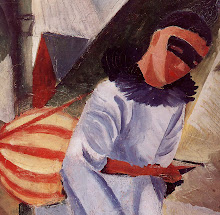The Journal has an interesting piece on Viacom's copyright claims against Google over its recently acquired YouTube. (There's more on the Law Blog as well.) The case implicates important questions regarding the applicability of the Digital Millenium Copyright Act's "safe harbor" provisions to a video-sharing site like YouTube. Viacom alleges that YouTube does not merely host websites that display copyrighted videos; rather, it "itself commits the infringing duplication, public performance and public display." In this way, Viacom argues, YouTube is unlike AOL and other ISP providers, which were within the contemplation of Congress when it passed the DMCA in 1998.
But surely the congressional record, if not the DMCA itself, contemplates the rise of new technologies? After all, it was the rise of new technologies that led to the DMCA in the first place. I don't see why AOL should enjoy a safe harbor even though it makes the display of copyrighted material possible, while YouTube does not. Neither AOL nor YouTube directly posts copyrighted material; they both provide ways (one through an ISP system, the other through a website) for displaying copyrighted material posted by others. Congress knew about ISPs and websites when they passed the DMCA. So why distinguish between them when it comes to the safe harbor provisions? Just because it's YouTube's business plan? But why can't a company build a business plan around a legitimate exception in copyright law, especially when YouTube is careful to avoid generating advertisement revenue from pages showing material that is not covered by a licensing agreement?
Wednesday, March 14, 2007
Subscribe to:
Post Comments (Atom)


No comments:
Post a Comment